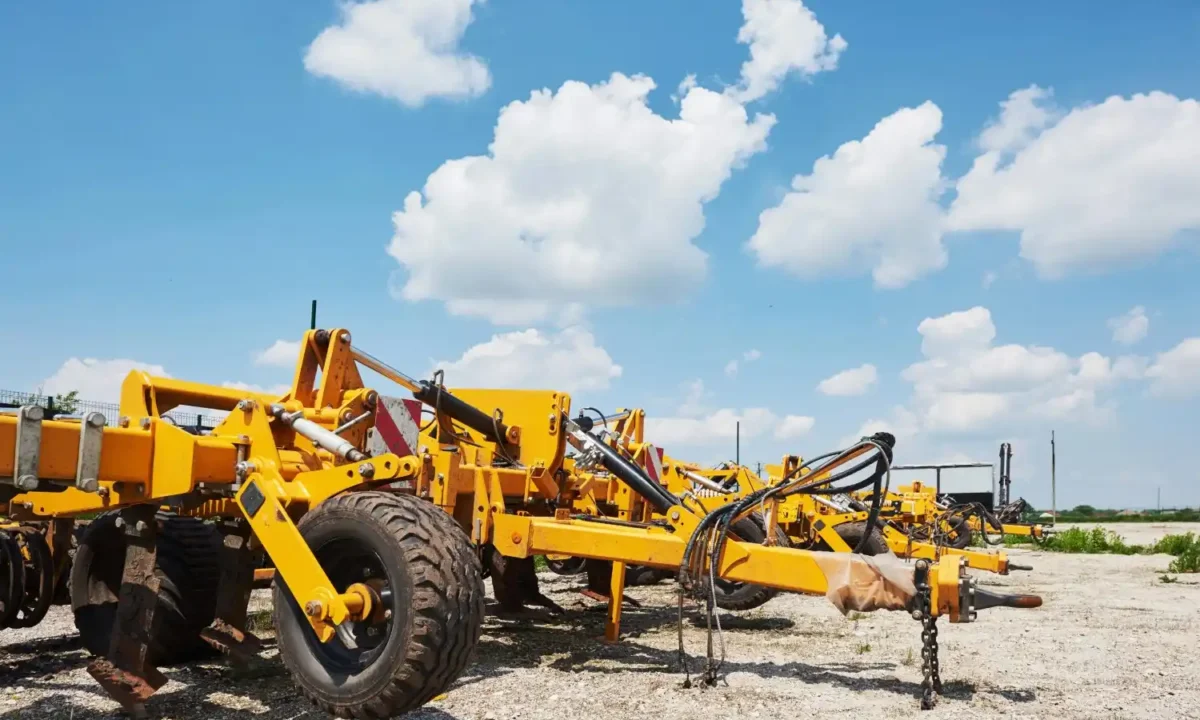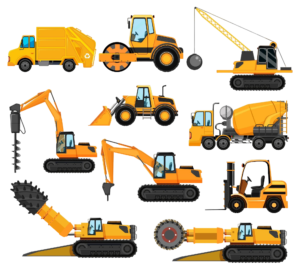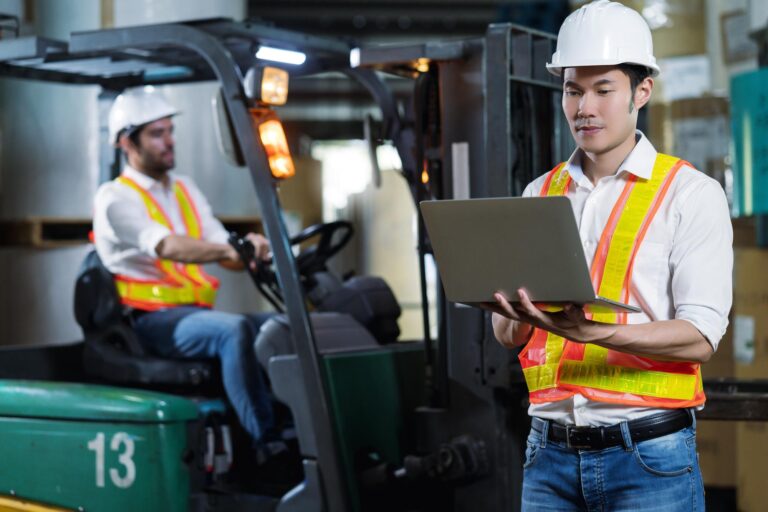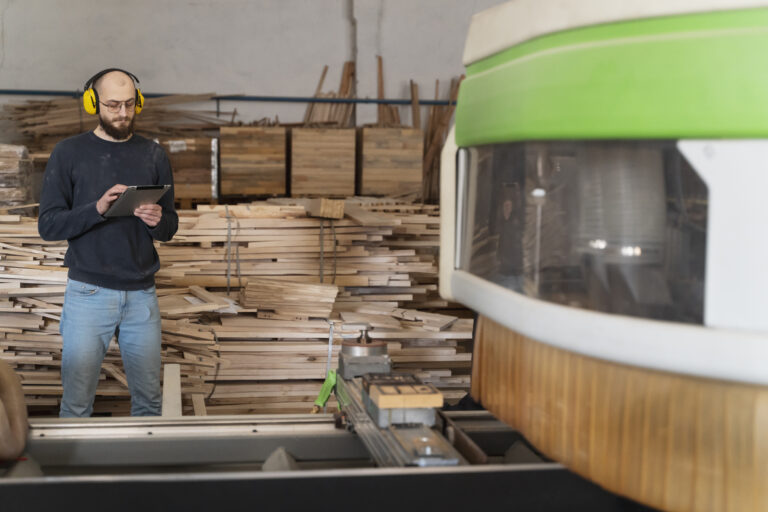
Why Renting Equipment is the Smart Choice for Construction Projects
Renting equipment is essential for executing large-scale projects efficiently and effectively in the construction industry. From excavation to lifting and hauling, these machines play a pivotal role in ensuring a project stays on schedule and meets quality standards.
Traditionally, construction companies have purchased heavy machinery. However, there has been a significant shift toward renting these machines in recent years. Renting heavy equipment has become an increasingly popular option for many businesses due to its many advantages, especially when compared to outright purchases.
It is a cost-effective solution and a strategic move that allows businesses to remain flexible, competitive, and environmentally responsible.
This article will explore why renting heavy equipment is bright for construction projects.
✅ If you found this blog helpful, check out tips on renting equipment for more valuable insights

The Benefits of Renting Heavy Equipment for Construction Work
1. Cost-Effectiveness

Lower Initial Investment
One of the most compelling reasons construction companies opt for heavy equipment rentals is the significantly lower initial investment. Purchasing construction machinery, especially high-end models, can involve considerable capital expenditure.
This upfront cost can tie up valuable financial resources that might be better used elsewhere in the project, such as labour, materials, or project management. Renting equipment eliminates this high initial cost, allowing businesses to focus on the more critical aspects of the project. This financial advantage of renting cannot be overstated, especially for businesses working on tight budgets or those undertaking short-term projects.
For businesses working on tight budgets or those undertaking short-term projects, renting heavy equipment offers a solution that avoids the financial burden of ownership. Instead of draining funds for a large purchase, companies can pay for equipment as needed, which provides much-needed flexibility in managing their finances.
Optimized Budget Allocation
Heavy equipment rentals enable construction businesses to optimize their budgets. Renting allows businesses to pay only for the equipment for the duration of the project or the time they need it. Unlike purchasing, which requires an upfront payment and may involve additional costs such as maintenance, insurance, and storage, renting enables businesses to allocate funds more effectively.
This allocation ensures that capital can be directed to other areas, such as paying for skilled labour or procuring the necessary materials to complete the project.
Rental companies offer flexible rental periods—daily, weekly, or monthly—so businesses can adjust their rental agreements based on the project’s evolving needs. This adaptability allows companies to avoid paying for machinery that is no longer required once a specific phase of the project is complete.
✅ If you liked this article, check out our guide on planning for heavy equipment use!
2. Access to Latest Technology

Cutting-Edge Machinery
When businesses rent heavy equipment, they gain access to the latest machinery without investing in purchasing new models. Rental companies regularly upgrade their fleet to provide high-quality, modern equipment that meets industry standards. Construction equipment technology evolves rapidly, with newer models offering better fuel efficiency, improved safety features, and enhanced performance.
By renting, businesses can avoid the expense of purchasing outdated equipment, ensuring they always have access to cutting-edge machinery that can complete projects more efficiently and precisely. This access to advanced technology is crucial in industries where precision and speed are paramount.
Competitive Advantage
In the highly competitive construction industry, staying ahead of the curve is vital. Renting state-of-the-art machinery can give companies a significant competitive edge. The ability to complete projects faster, more accurately, and with fewer environmental impacts can help contractors win more business and gain the trust of clients.
Moreover, using the latest machinery improves operational efficiency, leading to increased customer satisfaction and enhanced reputation.
This competitive advantage of renting cannot be overlooked, as it not only improves project outcomes but also positions businesses for future growth.
✅ If you found this helpful, check out our guide on construction equipment
3. Flexibility and Scalability

Adaptation to Project Size
Another major benefit of renting heavy equipment is its scalability. Projects often vary in size and scope, and the needs for equipment can change dramatically over time. Renting machinery allows contractors to adapt quickly and easily to these changes. Whether they need a single compact machine for a small job or a fleet of large excavators for a massive project, equipment leasing services offer the flexibility to choose the right equipment for any task.
This adaptability is a key advantage of renting, as it ensures that businesses are not limited to their existing inventory and can choose equipment that best fits the project’s current requirements.
Furthermore, rental companies often provide a variety of machinery, including specialized equipment that may only be needed for certain phases of a project. This means businesses are open to their existing inventory and can choose equipment that fits the project’s current requirements.
Easy Equipment Upgrades
Another advantage of construction equipment rental is the ability to upgrade machinery easily. The business can upgrade its rental agreement if it needs more powerful or specialized equipment for a project phase. This is a significant advantage over ownership, where upgrading often involves selling older models or incurring substantial costs to maintain outdated equipment.
Renting allows businesses to keep up with the latest developments in equipment technology without the financial burden of ownership. When a project demands more advanced or specialized machinery, businesses can easily transition to newer models without worrying about depreciation or disposal costs.
✅ Check out our guide on the top 10 construction equipment rentals in Saudi Arabia!
4. Reduced Maintenance and Storage Costs

Maintenance Responsibility of Rental Companies
When businesses own heavy equipment, they are responsible for its maintenance, which includes regular servicing, repairs, and replacement of worn-out parts. These maintenance tasks can add up to substantial costs over time. However, when renting equipment, maintenance responsibilities lie with the rental company. Rental companies ensure that their equipment is regularly serviced, well-maintained, and ready for use.
This eliminates the need for businesses to allocate funds for repairs and maintenance, which can be a significant financial strain, especially rental heavy equipment for smaller construction companies. By renting, companies can focus on completing their projects without worrying about unexpected equipment breakdowns or costly repairs.
No Need for Long-Term Storage
Another cost-saving benefit of renting heavy equipment is eliminating long-term storage costs. Construction equipment takes up much space, and businesses that own machinery must invest in proper storage facilities.
This often involves renting or purchasing additional space to store equipment that is not in use, especially during off-seasons.
Renting heavy equipment removes this issue, as the machinery is returned to the rental company once it is no longer needed. This saves on storage costs and eliminates the need for insurance coverage and the logistics of managing equipment storage.
No Depreciation Worries
When construction companies purchase heavy equipment, they are subject to depreciation, which means the equipment loses value over time. This depreciation affects the business’s bottom line, as the equipment’s resale value will likely be much lower than the original purchase price. Renting, however, allows companies to avoid the financial loss associated with depreciation. Since businesses are only paying for the rental period, they are not impacted by the long-term loss in equipment value.
This makes renting an attractive option for companies that need access to high-quality equipment without the financial drawbacks of ownership. Renting enables businesses to focus on completing projects without worrying about asset devaluation or the eventual sale of equipment.
✅ Learn the benefits of equipment rentals for construction and industrial projects!
5. Focus on Operational Efficiency

Reduced Downtime
Downtime is one of the most costly aspects of construction projects. Projects are delayed when equipment fails or is unavailable, leading to higher labour costs and missed deadlines. Renting heavy equipment helps reduce downtime by ensuring the machinery is readily available and well-maintained. Rental companies typically provide fully serviced, ready-to-use equipment so businesses can avoid delays caused by malfunctions or maintenance issues.
Moreover, many rental companies offer emergency support services, ensuring that businesses can quickly resolve problems during a project. This reduces the risk of project delays and ensures the project stays on track.
Access to Specialized Equipment
Some projects require specialized machinery, such as cranes, excavators, or bulldozers with unique attachments. Renting allows businesses to access these specialized machines without purchasing them outright. This is especially useful for projects that require specific equipment only for a short period. Renting allows acquiring the right equipment without committing to long-term ownership.
6. Environmental Considerations

Sustainable Practices
Renting construction equipment also has environmental benefits. Owning heavy machinery often increases demand for manufacturing, contributing to carbon emissions and environmental degradation. By renting, construction companies can reduce their ecological footprint. Rental companies tend to maintain newer, more energy-efficient machinery, which uses less fuel and produces fewer emissions than older models.
Moreover, rental companies dispose of and recycle outdated equipment, ensuring that machinery is not left in landfills. This helps businesses adopt sustainable practices and contribute to a greener, more sustainable construction industry.
Reduction in Equipment Waste
When companies own equipment, they may only sometimes use it to its full potential, leading to waste. Rental services help reduce equipment waste by ensuring that machinery is utilized efficiently.
Rental agreements often come with flexible terms, allowing businesses to rent equipment only when necessary, promoting more efficient resource use. Additionally, by sharing equipment among multiple contractors, rental companies contribute to the circular economy, where machinery is used and reused rather than disposed of.
✅ If this blog feels intresting then you must read : Things to know before renting Heavy equipement
Conclusion
Renting heavy equipment offers construction businesses numerous advantages, from cost savings to access to the latest technology and environmental benefits. It provides flexibility, scalability, and the ability to focus on operational efficiency without the burdens of ownership.
By renting, businesses can avoid significant upfront costs, maintenance responsibilities, and depreciation concerns while ensuring they have the right tools to complete their projects successfully.
For construction companies looking to stay competitive, renting equipment is not just a wise financial decision—it is a strategic move that can lead to more efficient, sustainable, and profitable projects.
FAQ About Renting Heavy Equipment for Construction
1.What types of equipment can be rented for construction projects?
Depending on your project’s needs, you can rent bulldozers, excavators, loaders, compact equipment, power tools, and more.
2.Is renting heavy equipment cost-effective in the long run?
Yes, renting helps save on maintenance, storage, and depreciation costs, making it an economical choice for both short- and long-term projects.
3.How does renting reduce downtime of equipment?
Rental companies provide well-maintained, ready-to-use machinery, ensuring minimal delays and reducing project downtime.
4.Can rental companies provide the latest technology?
Absolutely! Most rental companies offer modern, cutting-edge machinery, helping improve your project’s efficiency.
5.What environmental benefits come with renting construction machinery?
Renting promotes sustainable practices by reducing the ecological impact of manufacturing, storing, and disposing heavy machinery.


